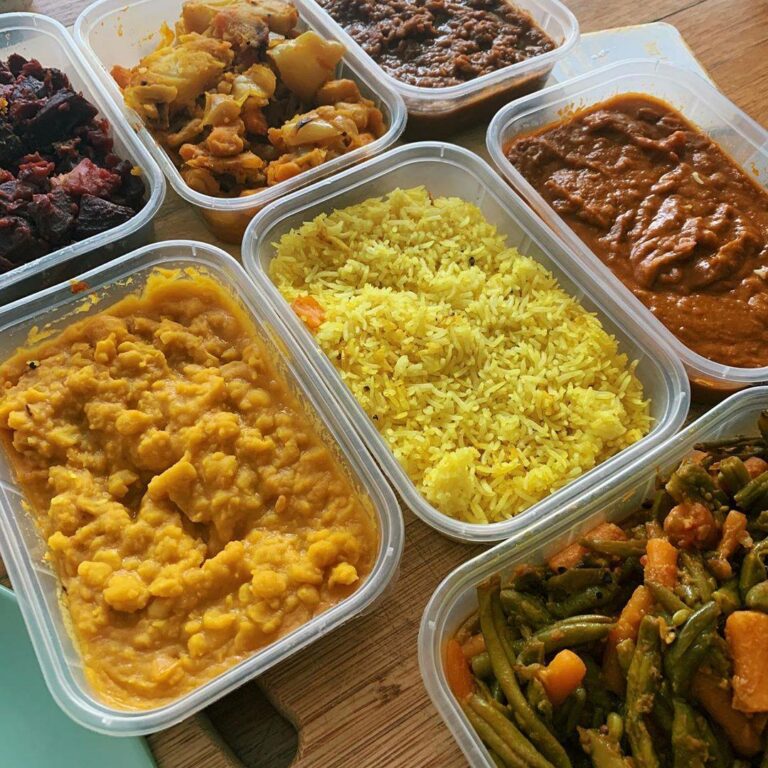Introduction: Exploring Eritrean Cuisine
The cuisine of Eritrea, a country located in the Horn of Africa, is a reflection of its cultural diversity and its history of trade and colonization. Eritrean cuisine is characterized by the use of spices, herbs, and vegetables, and its dishes are often eaten with injera, a spongy flatbread made from teff flour. Eritrean food is known for its richness, variety, and complexity.
The Importance of Food in Eritrean Culture
Food plays a central role in Eritrean culture, and it is an integral part of social life. Food is not only a source of sustenance but also a means of expressing hospitality, generosity, and respect. Eritreans take pride in their culinary traditions, and they often prepare elaborate meals for special occasions, such as weddings, festivals, and religious celebrations. Food is also a way of preserving cultural identity and passing it on to future generations.
Traditional Eritrean Dishes for Holidays and Celebrations
Eritrean cuisine is deeply intertwined with holidays and celebrations, and many traditional dishes are specific to certain occasions. These dishes are often made with special ingredients and prepared in unique ways, reflecting the cultural significance of the event. Some holidays and celebrations, such as Christmas and Easter, are celebrated by both Christians and Muslims, while others are specific to certain communities or regions.
The Role of Food in Eritrean Festivals
In Eritrea, festivals are a time of feasting, dancing, and celebration, and food is an essential part of the festivities. During festivals, families and friends gather to share meals and exchange gifts. Festivals are also a time to honor ancestors and express gratitude to the divine. Food is often used as an offering to the spirits, and it is believed to bring blessings and good fortune.
How Holidays and Celebrations Influence Eritrean Cuisine
Holidays and celebrations have a significant influence on Eritrean cuisine, shaping the ingredients, flavors, and techniques used in traditional dishes. For example, during the Muslim festival of Eid al-Fitr, which marks the end of Ramadan, it is customary to prepare sweet dishes such as baklava, basbousa, and karkadé. Similarly, during the Orthodox Christian holiday of Meskel, which commemorates the discovery of the True Cross, it is customary to prepare doro wot, a spicy chicken stew, and injera.
The Unique Flavors of Eritrean Holiday Dishes
Eritrean holiday dishes are known for their bold and complex flavors. Many dishes are characterized by the use of spices and herbs such as berbere, a blend of chili peppers, garlic, ginger, and other spices, and niter kibbeh, a spiced clarified butter. Other dishes are known for their sour or tangy flavors, such as tsebhi birsen, a beef stew made with tamarind paste, and zigni, a spicy beef stew.
Examples of Traditional Eritrean Holiday Dishes
Some examples of traditional Eritrean holiday dishes include:
- Zigni: a spicy beef stew made with berbere, tomatoes, onions, and garlic
- Doro wot: a spicy chicken stew made with berbere, onions, garlic, and ginger
- Tsebhi birsen: a sour beef stew made with tamarind paste, onions, and garlic
- Injera: a spongy flatbread made from teff flour, which is eaten with most Eritrean dishes
Conclusion: Celebrating Eritrean Culture Through Food
In conclusion, Eritrean cuisine is a vibrant and diverse reflection of the country’s culture, history, and traditions. Food plays a central role in the lives of Eritreans, and holidays and celebrations are a time to showcase and celebrate their culinary heritage. By exploring Eritrean cuisine, we can gain a deeper understanding and appreciation of this rich and fascinating culture.

